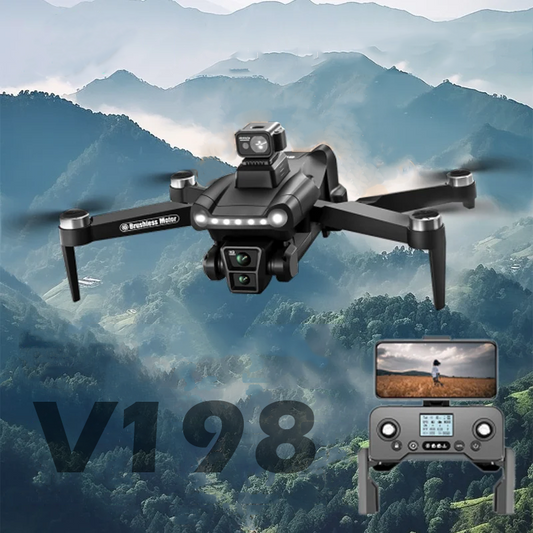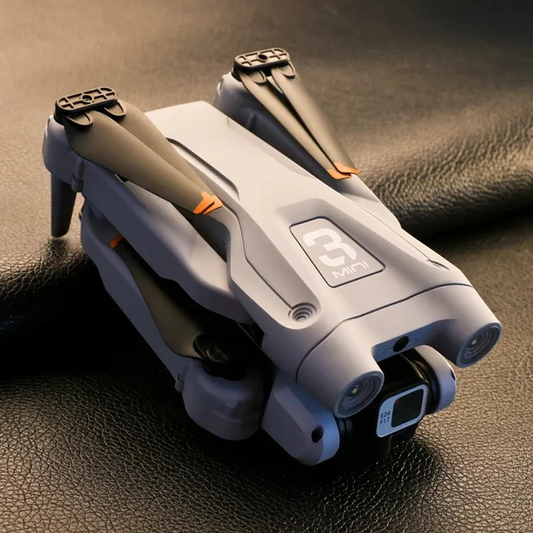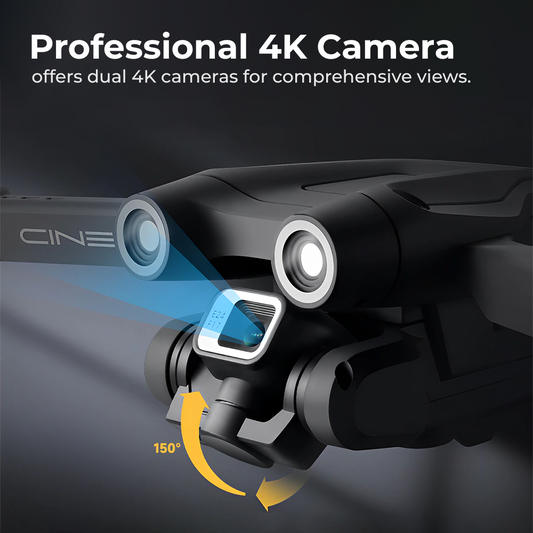The Role of Drones in Oceanography

In the vast and mysterious realm of the oceans, exploration and understanding have traditionally been challenging endeavours. However, with the advent of cutting-edge technology, particularly the integration of drones, the field of oceanography has experienced a revolutionary transformation. Drones, also known as Unmanned Aerial Vehicles (UAVs) or Unmanned Underwater Vehicles (UUVs), have emerged as indispensable tools in unravelling the secrets hidden beneath the ocean's surface. This article delves into the crucial role that drones play in advancing oceanography, offering a glimpse into the groundbreaking contributions these high-tech devices are making to our understanding of the world's oceans.
1.Efficient Data Collection:

Drones have significantly enhanced the efficiency and precision of data collection in oceanography. Traditional methods often involve deploying research vessels, which are not only expensive but also time-consuming. Drones provide a cost-effective and rapid alternative, allowing scientists to cover large areas of the ocean in a fraction of the time.
Equipped with state-of-the-art sensors and cameras, drones can capture high-resolution imagery and collect various types of data, including temperature, salinity, and nutrient levels. This wealth of information aids researchers in creating comprehensive models of ocean currents, marine ecosystems, and the overall health of the ocean.
2.Remote Sensing Technology:

One of the key strengths of drones lies in their ability to utilise remote sensing technology. By employing specialised sensors, drones can monitor and analyse oceanographic parameters without direct contact with the water. This is particularly valuable in regions that are challenging to access or navigate using traditional research methods.
Remote sensing technology enables the detection of subtle changes in ocean conditions, such as the identification of temperature gradients, phytoplankton concentrations, and even the presence of pollutants. These capabilities contribute to a more nuanced understanding of the dynamic and interconnected nature of marine environments.
3.Exploring Inaccessible Regions:
The ocean's vastness and depth have long limited researchers' access to certain areas, especially those located in extreme environments such as the polar regions or deep-sea trenches. Drones equipped with advanced navigation systems and durable designs can now venture into these previously inaccessible regions, providing scientists with unprecedented insights.
In polar regions, drones equipped with thermal imaging cameras help monitor ice shelves and study the effects of climate change. In the deep sea, remotely operated underwater drones (ROVs) enable researchers to explore hydrothermal vents, underwater volcanoes, and other extreme ecosystems. This expanded access to remote and harsh environments broadens the scope of oceanographic research and enhances our understanding of the intricate balance of marine ecosystems.
4.Monitoring Marine Life:

Drones play a pivotal role in monitoring marine life, from tracking migratory patterns of large marine mammals to studying the behaviour of microscopic organisms. Aerial drones provide a bird's-eye view of marine environments, aiding in the identification and tracking of marine species.
Underwater drones equipped with cameras and sensors contribute to the study of biodiversity and ecosystem dynamics. They can capture footage of underwater habitats, coral reefs, and marine organisms in their natural environment, offering valuable data for conservation efforts and the protection of endangered species.
5.Emergency Response and Disaster Management:

Drones are invaluable tools in emergency response and disaster management in the maritime domain. Whether it's monitoring oil spills, assessing the impact of natural disasters, or conducting search and rescue operations, drones provide rapid and real-time information.
Equipped with cameras and sensors, drones can quickly assess the extent of environmental damage and guide response efforts. They are instrumental in minimising the ecological impact of disasters and facilitating timely interventions to protect both marine life and coastal communities.
6.Advancements in Autonomous Exploration:

Recent advancements in artificial intelligence and autonomous technology have further elevated the role of drones in oceanography. Autonomous drones can operate for extended periods, covering vast distances and collecting data with minimal human intervention. This capability is particularly beneficial for long-term monitoring projects and the continuous observation of oceanographic phenomena.
Autonomous underwater vehicles (AUVs) are equipped with sensors that allow them to navigate and collect data independently. This reduces the need for constant human supervision and opens up new possibilities for sustained, high-resolution observations in remote and challenging environments.
In conclusion, drones have revolutionised the field of oceanography, offering unprecedented opportunities for exploration, research, and conservation. From efficient data collection and remote sensing to exploring inaccessible regions and monitoring marine life, these high-tech devices are driving innovation and expanding our understanding of the world's oceans.
As technology continues to evolve, the role of drones in oceanography is poised to grow even more significant. Researchers and scientists are continually pushing the boundaries of what is possible, utilising these powerful tools to unlock the mysteries of the deep and address pressing environmental challenges. The marriage of technology and oceanography exemplifies how innovation can pave the way for a more sustainable and informed approach to the conservation and management of our planet's most vital resource – the oceans.
Explore a variety of drones at our online drone store.
Happy Flying!









